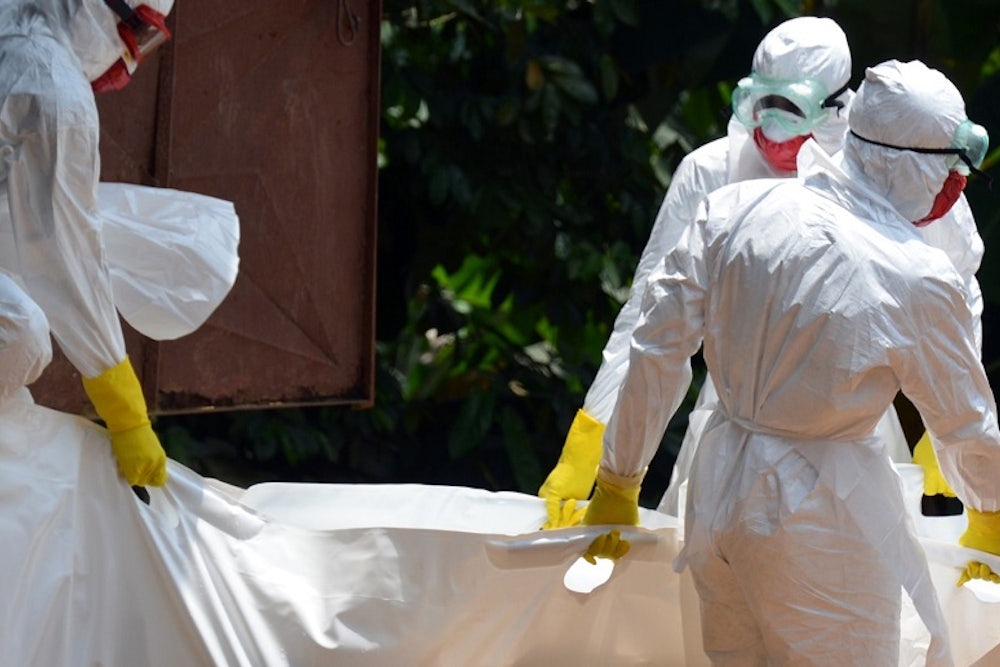The Ebola outbreak keeps getting scarier and scarier. The Centers for Disease Control released a new report Tuesday that included the worst-case scenario for Liberia and Sierra Leona. There have been 2,503 confirmed cases and 1,215 deaths caused by the current Ebola outbreak in those two countries, according to the World Health Organization. CDC's forecasts are much more dire. By September 30—yes, just a week away—they could reach 21,000. And by January 20, it could reach 1.4 million.
In fact, the disease is spreading so rapidly that on Friday, the CDC reportedly put the worst-case scenario at 500,000 cases by the end of January. Their estimates nearly tripled in just four days. CDC's worst case scenario also reports that the disease could become endemic, meaning that infections would be a constant fact of life in these countries.
That’s the bad news. The CDC's best-case scenario is much more optimistic, as Denise Grady explains in the New York Times, “In the best-case model — which assumes that the dead are buried safely and that 70 percent of patients are treated in settings that reduce the risk of transmission — the epidemic in both countries would be ‘almost ended’ by Jan. 20, the report said”
For its part, the WHO released their own worst-case scenario Monday that was less dire: 20,000 cases by November 2. But the organization noted that many cases go unreported, making it difficult to determine the current case total and model the trajectory of the outbreak.
"Not to disparage the WHO, but those [estimates] were done a little bit earlier with less complete data," said Dr. Howard Markel, a University of Michigan epidemiologist. The CDC, he added, has the most up-to-date data. But Markel has an even bigger concern: "What I’m predicting is that those numbers are still underestimated."
To combat the disease, President Obama announced last week an extensive plan to send 3,000 military personnel to Sierra Leone and build 17 hospitals there. Each hospital would have 100 beds. The U.S. will also send gloves, disinfectant kits and other gear in need. It’s not clear if that will be enough to stem this outbreak. But if anything near the CDC’s worst-case scenario comes to pass—or if Markel's prediction proves correct—West Africa will need a lot more help.
This post has been updated.
